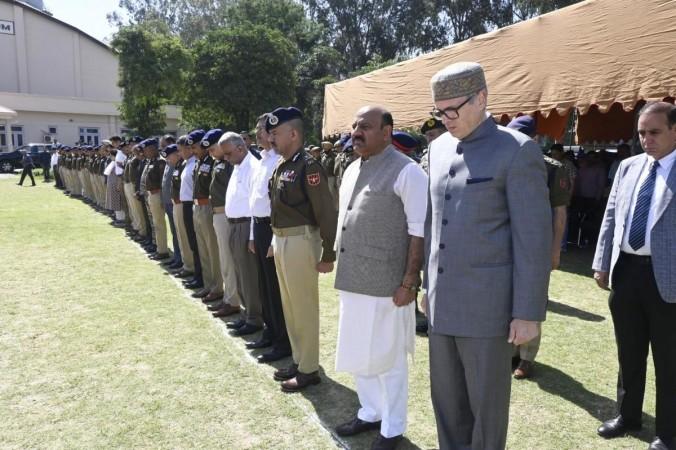
Two days after the Cabinet Committee on Security (CCS) announced the suspension of the Indus Water Treaty after a horrific terror attack in the Pahalgam area of south Kashmir, Jammu and Kashmir Chief Minister Omar Abdullah on Friday said that the document was unfair to the people of J&K.
Interacting with media persons after meeting with tourist operators, Omar Abdullah said that the treaty, which was signed between India and Pakistan in 1960, is the "most unfair document" to the people of the Union Territory.
"The Union Government has taken some steps. As far as Jammu and Kashmir is concerned, we have never been in favour of the Indus Water Treaty. We have always believed that the Indus Water Treaty has been the most unfair document to the people of Jammu and Kashmir".
Politicians have earlier demanded that Jammu and Kashmir has suffered losses due to the Indus Water Treaty (IWT) and should be compensated by the Centre.
![[Representational Image] According to the Indus Water Treaty, India has full rights on the eastern rivers — Sutlej, Beas and Ravi — and must allow unrestricted flow of water of the western rivers — Indus, Chenab and Jhelum — to Pakistan. Indus river](https://data1.ibtimes.co.in/en/full/629827/indus-river.jpg?h=450&l=50&t=40)
Under the Treaty, which was signed by Prime Minister Jawaharlal Nehru and Pakistan President Ayub Khan in September 1960, control of three rivers flowing through the erstwhile state of Jammu and Kashmir — Jhelum, Indus and Chenab — was given to Pakistan while India was given control over Beas, Ravi and Sutlej, all passing through Punjab.
India officially informed Pakistan about the suspension of the Indus Water Treaty
India has formally notified Pakistan in writing about the suspension of the Indus Water Treaty on Thursday.
Debashree Mukherjee, Secretary, Ministry of Jal Shakti, as informed the Secretary of Pakistan's Ministry of Water Resources, Syed Ali Murtaza, about this decision of the Indian government through a letter. India has issued a notice for changes in the treaty. The letter states that the Indian government has given notice to the Pakistani government for amendments to the treaty.
This decision was made at a meeting of the Cabinet Committee on Security (CCS) held on April 23, chaired by Prime Minister Narendra Modi, and attended by Home Minister Amit Shah, Defence Minister Rajnath Singh, and External Affairs Minister Jaishankar.

This comes after terrorists attacked tourists at Baisaran meadow in Pahalgam on April 22, killing 26 tourists while leaving several others injured.
Omar Abdullah holds interaction with tourism, business stakeholders in Kashmir
In the aftermath of the recent terror attack on civilians at Baisaran, Pahalgam, Chief Minister Omar Abdullah on Friday convened a detailed interaction with business stakeholders from Kashmir's tourism, travel, and trade sectors at SKICC, Srinagar.
The meeting commenced with a minute of silence in memory of the victims, expressing solidarity with the families who lost their loved ones in the tragic incident.

Addressing the gathering, Chief Minister Omar Abdullah said, "We collectively condemn the Pahalgam terror incident, mourn the loss of 26 innocent lives, and extend our heartfelt condolences to the bereaved families."
He noted the pain of meeting the victims' families—many of whom were visiting Kashmir on their honeymoon or family vacation. "As the Tourism Minister myself, I found it extremely difficult to meet their families. I was at a loss for words," he added.
Highlighting the collective outrage and unity across the Valley in the wake of the attack, Omar Abdullah said this unified response sends a powerful, silent message to those who seek to sow fear and division.
He commended the business community for taking a principled stand, saying, "You've clearly said this act was not in our name—neither have we ever supported such violence, nor will we ever in the future."
The Chief Minister assured that all constructive suggestions offered during the meeting would be seriously considered to help prevent the recurrence of such incidents.

















